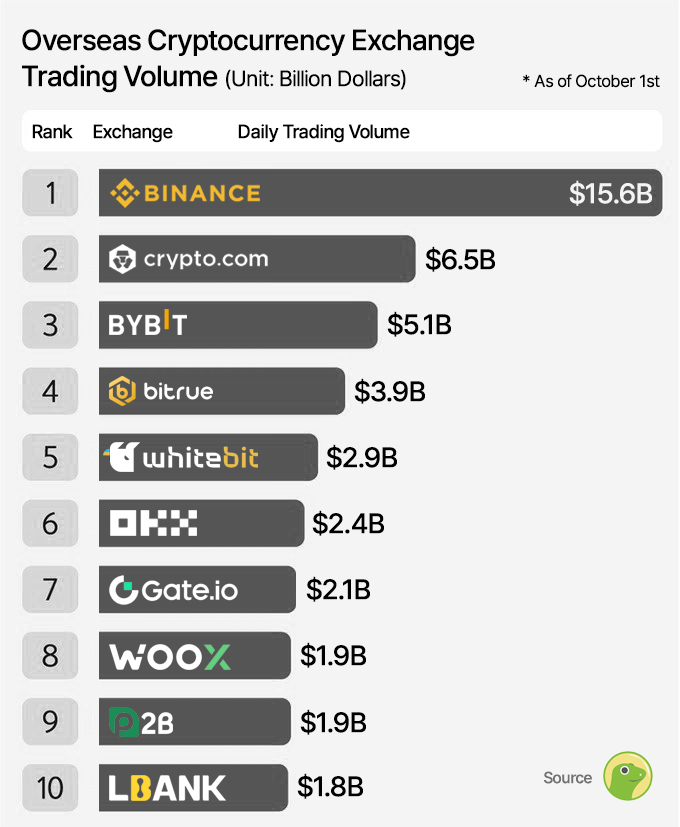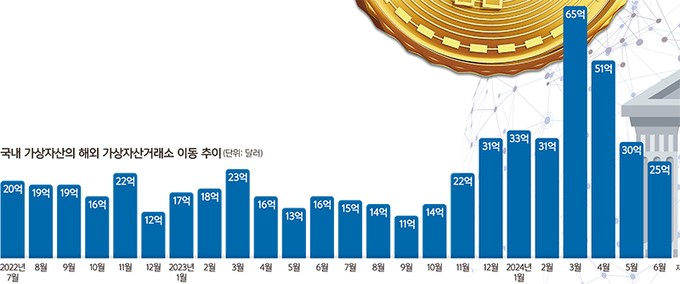
While domestic virtual asset exchanges are halting operations due to tightened regulations, overseas exchanges continue to operate freely without oversight, sparking controversy over “regulatory discrimination.” With the enactment of the Virtual Asset User Protection Act in July 2023, domestic exchanges are required to adhere to strict regulations, such as obtaining insurance and establishing transaction detection systems. In contrast, overseas exchanges are operating without regulations, drawing customers away from the domestic market.
These overseas exchanges bypass domestic regulations and continue to operate actively without proper registration, leading to a series of illegal fraud cases. For instance, A, a Korean employee of the overseas virtual asset exchange LBank, is under investigation by prosecutors for receiving large sums from domestic blockchain issuers under the pretense of listing fees. A reportedly promised issuers that they could list their assets on overseas exchanges, circumventing domestic laws, and carried out fraudulent schemes.
Additionally, several overseas exchanges have manipulated virtual asset prices or deceived investors using pump-and-dump schemes to steal money. Notably, KOK Coin and LF Coin promised high returns to domestic investors after being listed on overseas exchanges. However, dividends were never paid, leading to widespread discontent among the victims.
Since the share of coins traded in Korean won is quite significant globally, overseas exchanges view the Korean market as a key target. Exchanges like KuCoin and MEXC are expanding their influence by offering Korean-language services and conducting events and marketing aimed at domestic investors. Some overseas exchanges are even hiring Korean marketers through local job portals to attract domestic investors actively.

These overseas exchanges collaborate with domestic virtual asset issuers to assist in listings and deceive domestic investors into believing that the coins are trustworthy, thereby collecting investment funds through illegal operations. Furthermore, because transactions are conducted solely in virtual assets, issues such as tax evasion and money laundering are frequently occurring.
While domestic virtual asset exchanges are struggling to survive under stricter regulations, overseas exchanges are exploiting regulatory loopholes and continuing illegal operations targeting domestic investors. As such, there is growing criticism that domestic financial authorities need to respond more actively and impose stricter regulatory measures on overseas exchanges.


![[November]Uptober No More](https://coinhubkorea.com/wp-content/uploads/2025/10/Whisk_d78880efb01a730907f4be201effefe1dr-1-324x235.jpeg)



